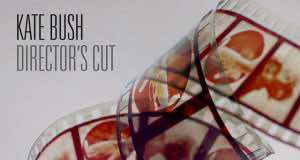 I’m not sure if the irony of this post’s headline will be apparent to those unfamiliar with Joy Division and New Order’s place in the history of the UK punk and post punk scene, but there was once a time when the members of New Order went out of their way to disassociate themselves with their former band, Joy Division. Now comes the first official compilation placing both bands’ songs on one CD. Last week, Rhino Records UK announced the release of Total: From Joy Division to New Order (Support the Independent Ethos, buy the album on Amazon.com).
I’m not sure if the irony of this post’s headline will be apparent to those unfamiliar with Joy Division and New Order’s place in the history of the UK punk and post punk scene, but there was once a time when the members of New Order went out of their way to disassociate themselves with their former band, Joy Division. Now comes the first official compilation placing both bands’ songs on one CD. Last week, Rhino Records UK announced the release of Total: From Joy Division to New Order (Support the Independent Ethos, buy the album on Amazon.com).
New Order represent a sad reality many successful independent bands are destined to fulfill. Dissolved since its last desperate attempt for relevance that was 2005’s Waiting for the Siren’s Call (Support the Independent Ethos, buy the album on Amazon.com… as cheap as .25 cents on CD as of this post!) for Warner Bros. Records, the band now has a new retrospective compilation that also includes its past as Joy Division. A US release will surely soon follow, but as of this post, Amazon.com is only offering the UK version to US customers.
 There have been countless repackages and reissues of New Order and Joy Division albums, outtakes, obscure live shows and hits since the late eighties, enough that I stopped caring after the release of 1995’s Best of New Order (Support the Independent Ethos, buy the CD on Amazon.com). The cynicism just sapped my interest in the group. I now hardly ever even revisit their albums.
There have been countless repackages and reissues of New Order and Joy Division albums, outtakes, obscure live shows and hits since the late eighties, enough that I stopped caring after the release of 1995’s Best of New Order (Support the Independent Ethos, buy the CD on Amazon.com). The cynicism just sapped my interest in the group. I now hardly ever even revisit their albums.
Once New Order achieved a new status of popularity in the early eighties with the appearance of “Blue Monday” in the dance clubs, the Manchester band transcended its ghost of Joy Division, essentially New Order without keyboardist Gillian Gilbert and vocalist/guitarist Bernard Sumner as Bernard Albrecht on only guitars while singer Ian Curtis took the mic (Curtis would hang himself before Joy Division embarked on their first US tour in 1980, leaving the remaining members to continue as New Order).
I remember the days in the late eighties when it seemed almost like heresy to include “In a Lonely Place,” a song written in the Joy Division days, on New Order’s first retrospective, Substance (Support the Independent Ethos, buy the album on Amazon.com).  The year after its release, New Order’s label released a separate Substance album for Joy Division’s music (Support the Independent Ethos, buy the album on Amazon.com). This happened well into its career as a major label act on then Warner Bros. subsidiary label Qwest Records, owned by Quincy Jones. Before that, after Curtis had killed himself, the surviving band members genuinely struggled with how to carry on. They decided to move on under a new band name and even traded vocals on their debut, 1981’s Movement (Support the Independent Ethos, buy the album on Amazon.com), which still captured most of the gloom Joy Division had been known for.
The year after its release, New Order’s label released a separate Substance album for Joy Division’s music (Support the Independent Ethos, buy the album on Amazon.com). This happened well into its career as a major label act on then Warner Bros. subsidiary label Qwest Records, owned by Quincy Jones. Before that, after Curtis had killed himself, the surviving band members genuinely struggled with how to carry on. They decided to move on under a new band name and even traded vocals on their debut, 1981’s Movement (Support the Independent Ethos, buy the album on Amazon.com), which still captured most of the gloom Joy Division had been known for.
With the passage of time, it has grown apparent the band itself has grown more cynical with the music business. Long gone are the days when they would release records without any credit to the individual musicians, much less included the lyrics to their songs. Now come the days when integrity to art no longer matters over a quick buck. Do not get me started on the decision by the band’s bassist, Peter Hook, to tour and even re-record Joy Division’s music, a move well documented by the UK’s NME. The dude could never even sing.
Maybe it’s a way for these aging post-punkers to come to terms with their growing irrelevance and mortality, but I feel it taints the legacy and mystery that had preceded their early work. It trivializes it all. For its audience, Curtis’ decision to off himself allowed for the ultimate artistic statement regarding a music movement Joy Division is often attributed of pioneering: Gothic rock. Though, I am sure, for those personally involved it is a much more private and painful matter. But dragging it out more than five years after New Order’s final, failed album is the pathetic equivalent to beating a dead horse. There is something so much nobler about letting this horse rest.









